Can risk grade be influenced?
Date
29 May 2019
Share

Fortunately, to some extent, you are able to positively influence your business’s risk grade factors by:
The timely provision of financial information to the financier/bank. Providing adequate security to the bank so that the bank is ‘fully secured’. This should always be balanced against what you have and wish to offer. Bank assessment as to the security value of various asset classes can vary considerably between banks. Each lender will apply a percentage of the value of a piece of machinery as their assessment of security value. For example, for a five-year-old excavator some lenders might apply up to 80 percent and some might apply as little as 50 percent.
Presenting your financial information and budgets to the bank, where necessary, with good quality assumptions that give clarity to future operating performance.
Retaining equity in the business and paying a reasonable shareholder salary to yourself, as bank models tend to give better weighting to equity shown as retained earnings than they do to quasi equity shown as shareholder loans.
Cash on hand can significantly influence your risk grade. Revolving credit facilities can provide cash funds (along with reduced interest costs) and your balance sheet will likely look stronger if these available funds at balance date are shown as a cash ‘current asset’ rather than a reduced debt balance. Also take care that long term debt is correctly classified as a term liability and not as a current liability.
Include asset revaluation reserves, where asset values at book value have depreciated well below fair market value (supported by an up-to-date valuation) or where appreciating assets, such as land and/or buildings reflect historic book values rather than current market values. If your business finances are supported by your residential property, it’s not unusual for that property to not be in the company financial accounts, but the debt is. Therefore, it is important to qualify that as part of the risk grading as it can materially impact your balance sheet equity, which is always a driver of risk grades.
While every circumstance is different, and accounting advice should be sought, our experience is that these factors can influence your risk grade. Talk to your business partner at Finance New Zealand about how you can positively impact your risk grade.
Similar Posts
12 January 2026
Asset & Equipment Finance LVRs
Purchasing new vehicles, machinery, or equipment often raises one key question: how much deposit is required? The answer depends on more than just the asset. It comes down to LVRs (Loan to Value Ratio's), structure, and lender, policy & appetite. This article explains how asset and equipment finance LVRs work in New Zealand, and why advice matters.

27 November 2025
The Bottom of the Cycle? What the OCR Cut Means for 2026
Shifting interest rates are reshaping the way businesses finance equipment, vehicles and growth. Understanding these changes can help you make smarter, better-timed funding decisions.


Page Links
Contact us
Finance New Zealand Limited L11 BDO Tower, 19-21 Como Street, Takapuna, Auckland 0622 PO Box 65164, Mairangi Bay 0754 T: (09) 222 0320E: info@financenz.co.nzMember of


Proud Sponsors of Auckland Rescue Helicopter Trust
Copyright Finance New Zealand Ltd 2026



